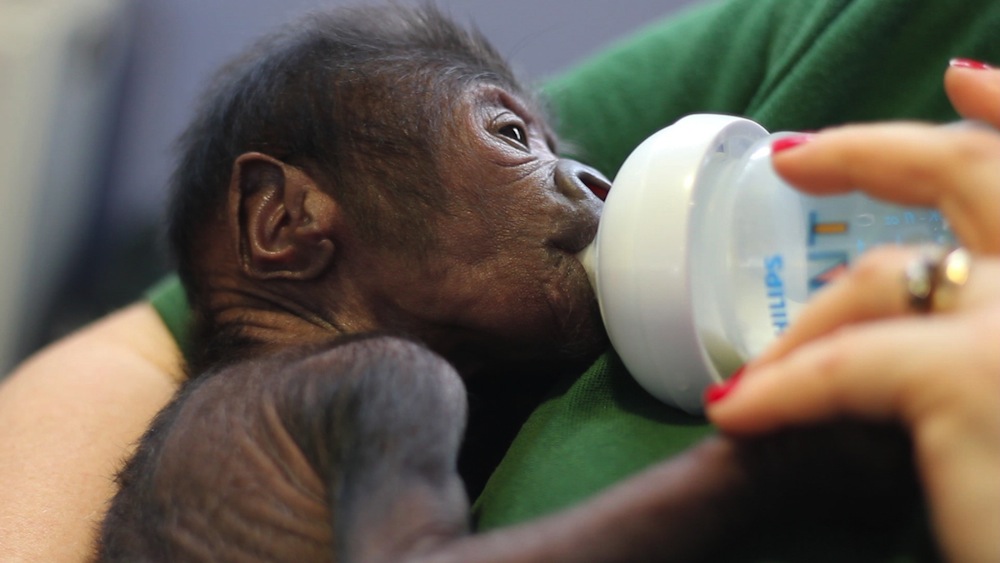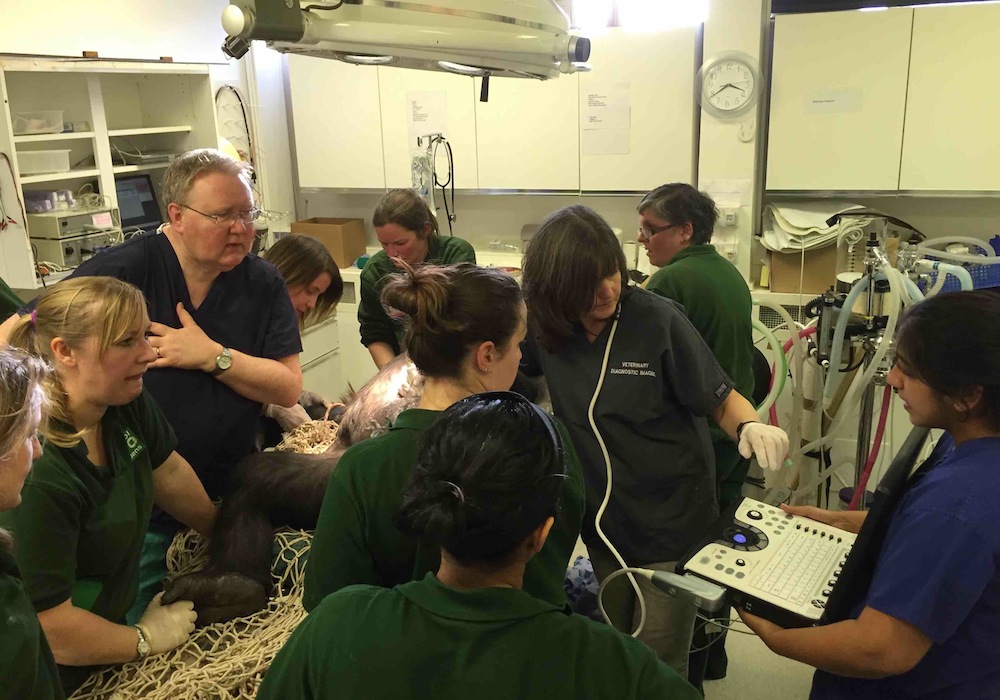Baby Gorilla Thriving After Rare C-Section Delivery

A baby gorilla was recently delivered by a rare emergency caesarean procedure, after her mother developed a potentially life-threatening condition, according to officials at the Bristol Zoo Gardens in the United Kingdom.
The baby western lowland gorilla was born on Feb. 12, weighing in at 2 pounds and 10 ounces (just over 1 kilogram), and zoo officials said she initially needed help breathing on her own. Animal keepers are now hand-rearing the baby gorilla and report that she is doing well, though the animal will not yet be on view to the public, according to the Bristol Zoo.
This is the first time a gorilla has been born via C-section at the Bristol Zoo, and there have only been a handful of other previous caesarean births like this in the world, zoo officials said. [Photos: World's Cutest Baby Wild Animals]
"The birth of any gorilla is a rare and exciting event, but the birth of a baby gorilla by caesarean section is even more unusual," John Partridge, senior curator of animals at the Bristol Zoo, said in a statement. "It wasn't a decision that we took lightly — Kera [the mother gorilla] was becoming quite poorly and we needed to act fast in order to give the best possible treatment to mother and baby, and to avoid the possibility of losing the baby."

Veterinarians opted for the emergency C-section after Kera, the mother gorilla, showed symptoms of preeclampsia, a serious complication that can also occur during human pregnancies.
"Following our assessment, we considered that Kera might have a condition that humans get (preeclampsia) and that the only way to treat it was by delivery," David Cahill, a professor of reproductive medicine and medical education at the University of Bristol, who assisted the Bristol Zoo's in-house veterinary team, said in a statement. "We also thought that the baby in her uterus was showing signs of being very unwell and in need of delivery."
Officials at the Bristol Zoo said Kera is recovering, and her condition is being closely monitored. Veterinarians are also providing around-the-clock care for Kera's as-yet-unnamed baby.
Sign up for the Live Science daily newsletter now
Get the world’s most fascinating discoveries delivered straight to your inbox.
"Along with having my own children, this is probably one of the biggest achievements of my life, and something I will certainly never forget," Cahill said. "I have since been back to visit Kera and the baby gorilla, [and] it was wonderful to see them both doing so well."
Follow Denise Chow on Twitter @denisechow. Follow Live Science @livescience, Facebook & Google+. Original article on Live Science.

Denise Chow was the assistant managing editor at Live Science before moving to NBC News as a science reporter, where she focuses on general science and climate change. Before joining the Live Science team in 2013, she spent two years as a staff writer for Space.com, writing about rocket launches and covering NASA's final three space shuttle missions. A Canadian transplant, Denise has a bachelor's degree from the University of Toronto, and a master's degree in journalism from New York University.
Scientists built largest brain 'connectome' to date by having a lab mouse watch 'The Matrix' and 'Star Wars'
Archaeologists may have discovered the birthplace of Alexander the Great's grandmother
Elusive neutrinos' mass just got halved — and it could mean physicists are close to solving a major cosmic mystery









